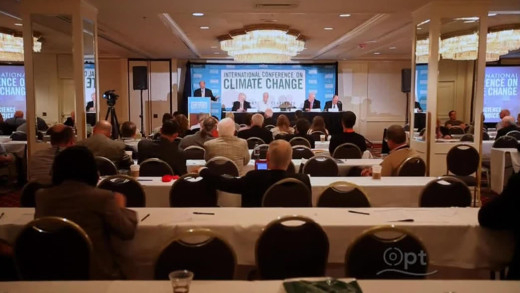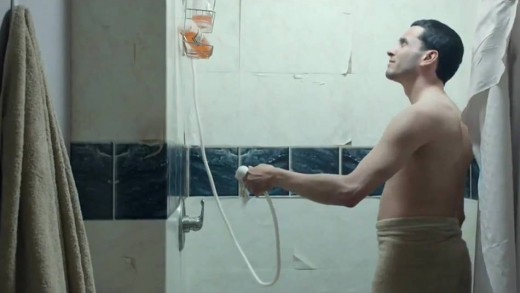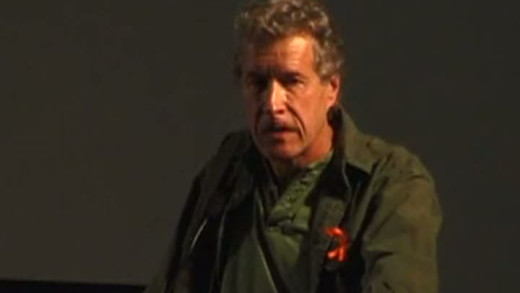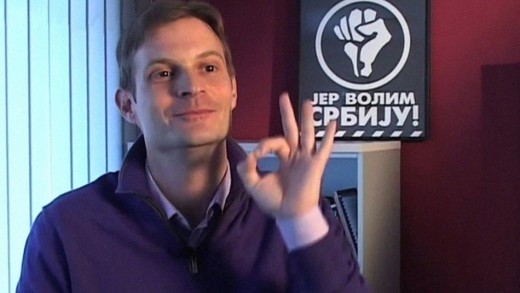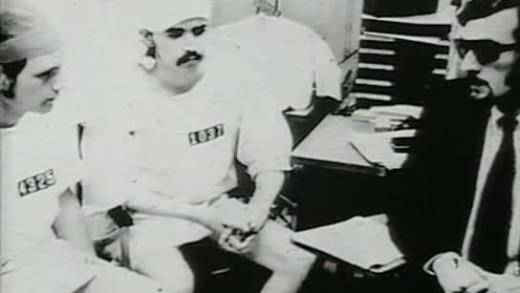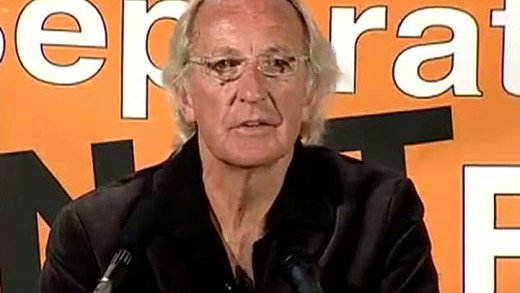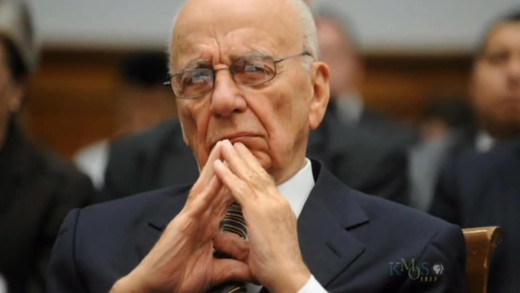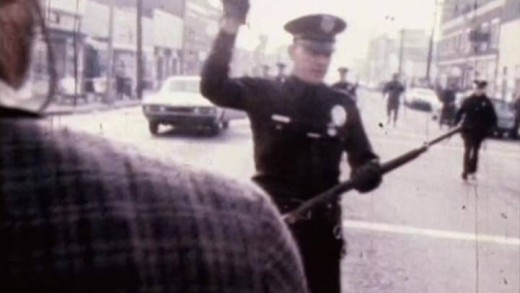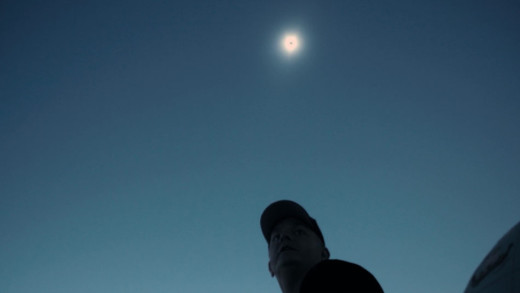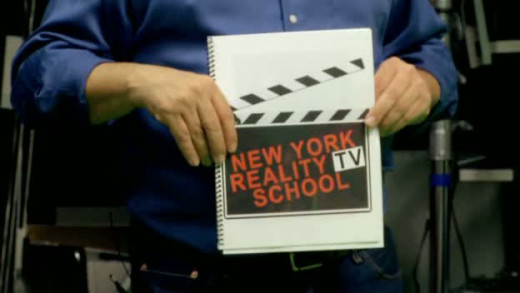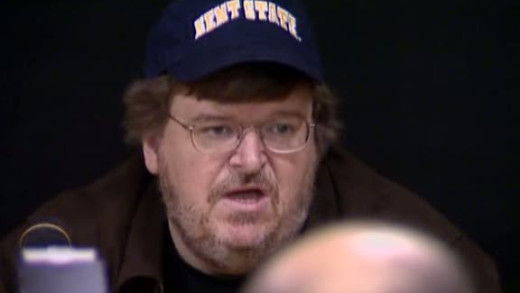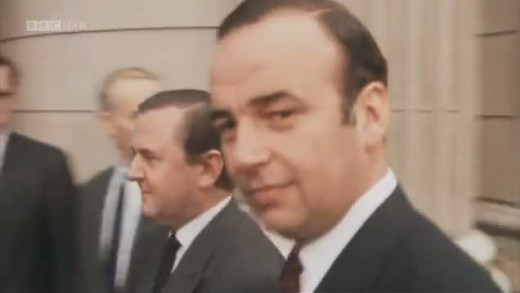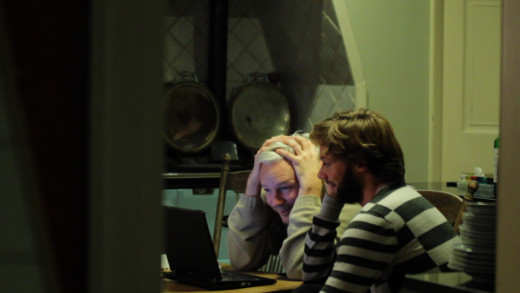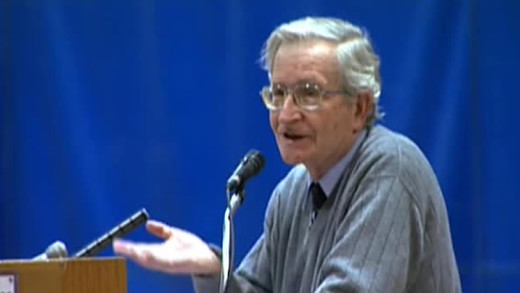The Illusionists examines how global advertising firms, mass media, and the beauty, fashion, and cosmetic-surgery industries have together colonised the way people all around the world define beauty and see themselves. Taking us from Harvard to the halls of the Louvre, from a cosmetic surgeon's office in Beirut to the heart of Tokyo's Electric Town, The Illusionists shows how these industries saturate our lives with narrow, Westernised, consumer-driven images of so-called beauty that show little to no respect for biological realities or cultural differences. Featuring voices from prominent sociologists, magazine editors, scientists, artists, and activists, The Illusionists documents a truly global phenomenon, with hegemonic results.
The Living Dead: Three Films About the Power of the Past is a series of films that investigate the way that history and memory (both national and individual) have been manipulated and distorted by politicians and others for various means of control...
Climate Of Doubt is an investigation into the growing forces manipulating public opinion on the scientific consensus of impacts to global climate by industrial civilisation. A massive disinformation campaign is growing from the fronts of government and corporate interests to undermine scientific processes and reshape public perceptions. Climate Of Doubt ventures inside these organisations to demonstrate the strong influence of the global politick on maintaining established denial, and ignoring culpability on the issue of anthropogenic climate change.
Would any sane person think dumpster diving would have stopped Hitler, or that composting would have ended slavery or brought about the eight-hour workday; or that chopping wood and carrying water would have gotten people out of Tsarist prisons; or that dancing around a fire would have helped put in place the Voting Rights Act of 1957 or the Civil Rights Act of 1964? Then why now, with all the world at stake, do so many people retreat into these entirely personal "solutions"? Why are these "solutions" not sufficient? But most importantly, what can be done instead to actually stop the murder of the planet?
At the Heart of Gold: Inside the USA Gymnastics Scandal reveals a dangerous athletic culture that prioritised winning over everything else, including protecting young female athletes. For more than 30 years, Larry Nassar worked with gymnasts, as a respected trainer and doctor. He was charming, taught at church, volunteered in the community, and was seemingly well-liked throughout. He treated girls' aches and pains, becoming a friend and confidant to many along the way, while also sexually abusing them during sessions for many years. When some girls began to speak up about their experiences, they were silenced, gaslighted or denied, all the way up to the highest levels of management, across multiple sporting institutions. After many complaints and eventually a cumulative legal investigation, Nassar ends up exposed as a serial sex offender. This film unpacks the scandal, its cover-up, and aftermath, through interviews with dozens of survivors, as well as coaches, lawyers and journalists, as one of the most high-profile paedophile trials in recent years. It documents the grooming, methods, and psychology of a charismatic sexual abuser, as well as the culture that enables and perpetuates it.
Confessions of an Economic Hit Man is a presentation by John Perkins, based on the book by the same name published by him in 2004. Perkins describes the role: "Economic hit men are highly-paid professionals who cheat countries around the globe out of trillions of dollars. They funnel money from the World Bank, the US Agency for International Development (USAID), and other foreign "aid" organisations into the coffers of huge corporations and the pockets of a few wealthy families who control the planet's natural resources. Their tools included fraudulent financial reports, rigged elections, pay-offs, extortion, sex, and murder. They play a game as old as empire, but one that has taken on new and terrifying dimensions during this time of globalisation."
The Revolution Business examines the role of United States intelligence agencies in the recent revolutionary movements such as the Arab Spring and others by the use of "Revolution Consultants." Of particular interest is a Serbian man Srđa Popović, who formed an organisation called Отпор! (Otpor) which tought "non-violent struggle" in the overthrow of Slobodan Milošević in Serbia during the 1990s, and which has now gone on to inspire a new generation of activists. However, some political commentators like William Engdahl are convinced that Otpor is financed by the United States and has ties to intelligence agenices, also having dubious funding from sources such as the Rand Corporation, the Department of Defence, as well as various fronts such as the National Endowment for Democracy (NED), the International Republican Institute (IRI), the US Institute of Peace and the Ford Foundation--all of which have a long history of collaborating with the Pentagon, the State Department and the CIA in destabilising movements and usurping popular uprisings, removing their teeth.
Mainstream media regularly uses public opinion polls in the reporting of news and political analytics. But how do media outlets report polls and to what end? In this interview, author and academic Justin Lewis demonstrates the way in which polling data is used by the media to not just reflect what populations supposedly think, but instead to construct public opinion itself.
The Power of Big Oil is a three-part series that investigates the decades-long failure to confront the threat of climate change and the role of the fossil fuel industry. The series presents a parade of former oil company scientists, lobbyists, and public relations strategists who lay bare how the biggest petroleum firm in the United States, Exxon, and then the broader petroleum industry globally, moved from attempting to understand the causes of a global heating to a concerted campaign to hide the making of an environmental catastrophe. Over three episodes--Denial, Doubt, Delay--the series documents the corporate cooptation of science, the manipulation of public opinion, and political figureheads that mirror conduct by other industries--from big tobacco to the pharmaceutical companies responsible for the opioid epidemic.
Pepsi vs. Coke in The Ice Cold War traces the history of the worldwide struggle for soft drink supremacy by the Coca Cola Company, against the backdrop of World War II. The war was the perfect vehicle for Coca-Cola distribution, including to the Nazis. Bottling plants on front lines were paid for by the US war department. Nixon got Kremlin supremo, Khrushchev, to pose drinking Pepsi, which became the first US product made in the Soviet Union. In 1949, Mao kicked Coca-Cola out of China. President Carter got it back in 1978. In Chile, Pepsi Cola's boss ran a daily paper which was used by the CIA to help Pinochet's bloody coup...
In the summer of 1971, Philip Zimbardo, Craig Haney, and Curtis Banks carried out a psychological experiment to test a simple question: What happens when you put ordinary people in positions of power, enabling abuse? Does humanity win over evil, or does evil triumph? To explore this, student volunteers were selected and randomly assigned to play the role of prisoner or guard in a simulated prison at Stanford University. Although the students were mentally healthy and knew they were taking part in an experiment, some guards quickly became sadistic, while prisoners showed signs of acute stress, depression and trauma. After only six days, the planned two-week study was a disaster...
Girl Model offers a glimpse into the hall of mirrors that is the modelling world as it interfaces with other industries and other countries. The film follows Ashley—a deeply ambivalent former-model who is now a scout and scours the Siberian countryside looking for 'fresh faces' to send to the Japanese market; and one of her 'discoveries,' Nadya, a thirteen year-old plucked from the Siberian countryside and dropped into the centre of Tokyo with promises of a profitable career. What entails is the opening of a can of worms that isn't easily solved in one sitting—a thriving and curiously sinister modelling industry that spans the globe, luring everywhere with pretences of wonder, success and riches. But the realities are harsh. The fashion industry can look glamorous from the outside, but its insides are, at the very least, deceptive and sinister; and the myths run deeply entrenched in the culture, constantly promulgating new, young recruits. This 'meat market,' a prelude to sex trafficking, is creepy, ugly, and preys on the young and vulnerable. Can the spell be broken?
Produced twenty years ago, and even several years before the rise of Fox News, The Myth of the Liberal Media is possibly relevant now more than ever. The film dissects how news content gets shaped within a narrow and ultimately conservative institutional framework that marginalises other perspectives, filtering news events through a lens that serves power. Featuring scholarly analysis from Justin Lewis, Edward Herman and Noam Chomsky, The Myth of the Liberal Media asks: If you want to understand the way a system works, you look at its institutional structure. How it is organised, how it is controlled, how it is funded. The documentary examines the relationship advertising has in funding the media, and how this sets agendas, as well as exploring certain narratives that are propagated through a number of case studies that reveal how these mechanisms ultimately serve power instead of public interest.
Since 1945, by deed and by example, the US has overthrown 50 governments, including democracies, crushed some 30 liberation movements and supported tyrannies from Egypt to Guatemala. Bombing and war is as American as apple pie. Obama, having stacked his government with warmongers, Wall Street cronies and polluters from the Bush and Clinton eras, the 45th president is merely upholding tradition...
Over half a century, Rupert Murdoch's rapacious business audacity has built one of the world's most powerful and ubiquitous media empires. But with revelations of bribery, blackmail, collusion with police and government, wiretapping and other invasions on privacy, the empire seems to be showing cracks. The scandal has prompted criminal investigations on both sides of the Atlantic and also broken open the insular world of the Murdoch family, its news executives, and the vast political elite who court their favour. Murdoch's Scandal tells the story of the battle over the future of News Corporation and the challenging of the extensive media empire...
A secret illegal project from the 1950s, 60s and 70s called COINTELPRO, represents the state's strategy to prevent resistance movements and communities from achieving their ends of racial justice, social equality and human rights. The program was mandated by the United States' FBI, formally inscribing a conspiracy to destroy social movements, as well as mount institutionalised attacks against allies of such movements and other key organisations. Some of the goals were to disrupt, divide, and destroy movements, as well as instilling paranoia, manipulation by surveillance, imprisonment, and even outright murder of key figures of movements and other people. Many of the government's crimes are still unknown. Through interviews with activists who experienced these abuses first-hand, COINTELPRO 101 opens the door to understanding this history, with the intended audience being the generations that did not experience the social justice movements of the 60s and 70s; where illegal surveillance, disruption, and outright murder committed by the government was rampant and rapacious. This film stands to provide an educational introduction to a period of intense repression, to draw many relevant and important lessons for the present and the future of social justice.
Behind the Curve documents the resurgence of believers of a flat Earth, as made popular through YouTube videos. The film is a personal exploration of how people became exposed to flat Earth theories (the YouTube algorithm), and how those ideas were reinforced in an echo chamber of social media, rejecting empirical evidence, at a time of increasing countercultural distrust in authority figures and the epistemology of science. The narrative at the core of the film reveals how the screen bubble can envelop a person's informational exposure, and change their relationships and perceptions in the real world, where confirmation bias is reinforced, making alternative views threatening, and individualism sacrosanct. Information that is contrary to a deeply held belief then becomes increasingly impossible to accept, especially if it has changed your life and circle of friends. So with empathy and a playful warmth, Behind the Curve becomes a warning light to the importance of honest discourse and critical analysis, falsifiability and dogma, but above all, to empathy and understanding of a person's desire to create meaning and acceptance in a lonely, fragmented culture.
Starsuckers
By planting a variety of fake celebrity-related stories in the UK media and having tabloid newspapers accept them without corroboration or evidence, Starsuckers navigates through the shams and deceit involved in creating a pernicious celebrity culture, uncovering the real reasons behind the addiction to fame and the corporations and individuals who profit from it.
Child Sex Trade USA travels through the United States to reveal the workings of a pervasive child sex trade, discovering that it is just as easy to 'buy a child' in the US as it is in Asia. 300,000 American children have been forced in to the sex industry, as of 2009, in the United States alone. This film presents a much needed analysis of the shocking cultural values that surround child abuse, paedophilia, human trafficking and prostitution; asking big questions of how, why, and what to do about it...
Filmmaker Darryl Roberts goes on a five year journey to examine this culture's burgeoning obsession with physical beauty and perfection, showing how increasingly unattainable images contribute to the rise in low self-esteem, body dismorphia, and eating disorders for young women and girls who also happen to be the beauty industry's largest consumers. In almost 40,000 media messages a year, young people are being told that unless you look like supermodels and rock stars, you're not good enough for anyone. In 2004 alone, people across the United States spent $12.4 billion on cosmetic surgery. America the Beautiful explores why these people are spending so much money to cover up their discontent that is mainly driven by advertising. What are the true costs of this culture's obsession with youth, plastic notions of beauty, and impossibly slender physiques? Who actually benefits from this high-priced journey towards a fake ideal, and does it justify an entire nation's psychosis?
The Secret History of the Credit Card uncovers the deceptive techniques and tactics used by banks and financial corporations to get citizens to take on ever more debt, while earning record profits. Penalty fees, defaulting, changing contracts, increasing rates retrospectively---these are some of the ways credit card companies gouge their users, and increase influence. The film shows how such profitability of credit cards began in the 1980s, when the banking industry successfully eliminated the limit on the interest rate a lender can charge a borrower. This deregulation, coupled with real-time tracking of personal financial information, facilitated the widening availability of credit cards. Despite a growing number of consumer complaints, the ability of state and local governments to investigate the credit card companies has virtually been eliminated, due to companies incessant lobbying and litigation that has created a jurisdictional "turf battle."
To the movie-going public, Michael Moore is known as a corporate big-wig buster and perhaps the mainstream media's most vocal opponent of the Republican Party. But what happens when the hunter becomes the hunted? In this film, Canadian creators Debbie Melnyk and Rick Caine find out first hand. While originally intending to create a biography of Moore stemming from their own great admiration for his work, the creators find that they have become disenchanted with many of Michael Moore's 'tactics' and the story takes an interesting twist...
This short film uses the history and figure of the Murdoch media empire as a vast invasive machine, to draw parallels to new media machines such as Google that are not only more invasive, but more pervasive than anything the Murdoch media empire has managed. Why are we not more concerned about this?
In Mediastan, an undercover team of journalists drive across central Asia interviewing editors of local media outlets to publish secret US diplomatic cables that were provided to WikiLeaks in 2010. Success is varied. And so, after regrouping with Julian Assange in England, questioning the editor of the Guardian, and obtaining candid footage of the New York Times editor and its publisher Arthur Sulzberger, Mediastan closes by leaving the viewer with an informative first-hand overview of the machinations of mainstream media. By venturing into the minds—and actions—of the people and institutions who shape the news, Mediastan shows the system for what it's worth, and reveals its true motivations...
We live in an absolutely saturated media environment of images that span 'real' and fake—whether it's newspaper and tabloid photos, journalism itself, art and culture, or the human body. Images claim to be hardly distinguishable from the originals, while the virtual world is increasingly becoming 'seamless' in the real world. Kids today see a Clown Fish but instead impose their imagery of Finding Nemo. People interact with machines more than they do living beings. The narratives imposed by this technological and media culture are fast seeking to entirely replace the real world with a simulation of it. So what does that mean for the truth? The Industry of Fake explores the shifting boundaries and inequality in journalism and in art, as well as providing a basis to question this culture's fascination with simulacra—a process of mimicry mediated by images that represents the real thing, but is not the real thing. What does it mean if we value our projections or stories about the thing as opposed to the thing in-and-of itself? What does this mean in the real world if we come to value our simulations or representations as more authentic things as opposed to copies or toxic mimics?
Jesus Camp follows several young children as they prepare to attend an event called 'Kids on Fire,' a Christian summer camp run by Becky Fischer. Through interviews with Fisher, the children, and others, Jesus Camp illustrates the unswerving belief of the faithful—a housewife and home-schooling mother tells her son that creationism has all the answers; footage from inside the camp shows young children weeping and wailing as they promise to stop their sinning; child after child is driven to tears. These scenes are contrasted with clips from another Christian radio host who is appalled by such happenings. Are these children being brainwashed?
Rebel Without A Pause follows renowned linguist and activist, Noam Chomsky through discussions and talks on various world events such as the invasion of Iraq, the September 11th attacks and the War on Terror. Chomsky also weaves in accounts of media manipulation, social control, and discusses the workings of the politics of fear. The film combines footage from large forums to small interactive discussions on these topics, as well as reflections from others...
Merchants of Doubt looks at the well established Public Relations tactic of saturating the media with shills who present themselves as independent scientific authorities on issues in order to cast doubt in the public mind. The film looks at how this tactic, that was originally developed by the tobacco industry to obfuscate the health risks of smoking, has since come to cloud other issues such as the pervasiveness of toxic chemicals, flame retardants, asbestos, certain pharmaceutical drugs and now, climate change. Using the icon of a magician, Merchants of Doubt explores the analogy between these tactics and the methods used by magicians to distract their audiences from observing how illusions are performed. For example, with the tobacco industry, the shills successfully delayed government regulation until long after the health risks from smoking was unequivocally proven. Likewise with manufacturers of flame retardants, who worked to protect their sales after the toxic effects and pervasiveness of the chemicals were discovered. This is all made analogous to the ongoing use of these very same tactics to stall governmental action in regards to global climate change today.


